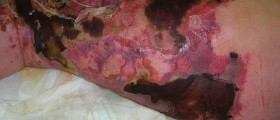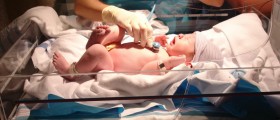
Meningitis is a serious medical condition which affects the meninges, the system of membranes surrounding the brain and the spinal cord. The infection and subsequent swelling may be responsible for many symptoms and signs as well as potential complications, some of which remain for the rest of the patient's life. One of many potential complications of meningitis is hearing loss.Clinical Characteristics of the Infection
No matter what the underlying cause of the inflammation of the meninges is, meningitis in almost all cases has similar clinical presentation. Symptoms include rapidly rising and rather high fever, nausea, vomiting, headache, sometimes skin rash and increased sensitivity to light medically known as photophobia.
Potential complications, including hearing loss, occur in the early stage of the infection or a bit later. Conformation of hearing impairment is achieved later when doctors bring all the symptoms and signs of the infection under control. Hearing loss induced by antibiotics occurs some time after the treatment is initiated.
Meningitis and Hearing Loss
Meningitis affects people of all ages and is a potentially fatal disease for certain individuals. Bacterial meningitis is much more related to complications than viral form of the disease. Still, if treated on time and with potent antibiotics even bacterial meningitis can be completely cured, leaving no additional neurological sequelae. Deafness in people suffering from meningitis may be caused by the infection itself or occurs as a side effect of some antibiotics used for eradication of harmful bacteria.
Even though hearing loss associated with meningitis is permanent, in some cases patients develop only temporary hearing loss.
Some studies suggested that dark-eyed people are not so susceptible to deafness associated with meningitis. On the other hand, increased susceptibility was reported in lighter-eyes individuals.
Treatment for Hearing Loss Caused By Meningitis
In people in whom hearing has been completely damaged the only efficient treatment options include different hearing aids and cochlear implants. Still, even these devices may not be efficient enough and restore lost hearing. These people should learn sign language or lip-reading in order to maintain communication with other, healthy people.
It may be very hard for people to face hearing loss caused by meningitis. This issue is even more complex in people who have suffered complete hearing loss affecting both ears. Such individuals are prone to depression and similar problems. So, in order to cope with the loss it is best to search for support groups. Support groups can help sufferers to deal with their loss and accept it as well as to learn how to continue with their lives.

















Your thoughts on this
Loading...